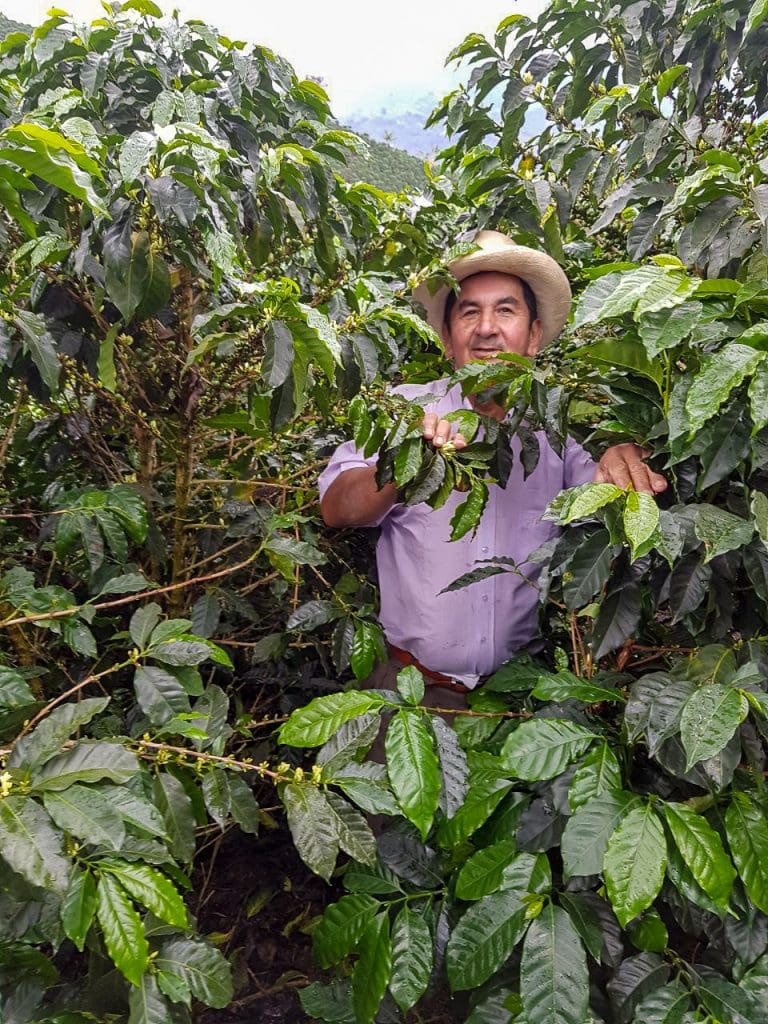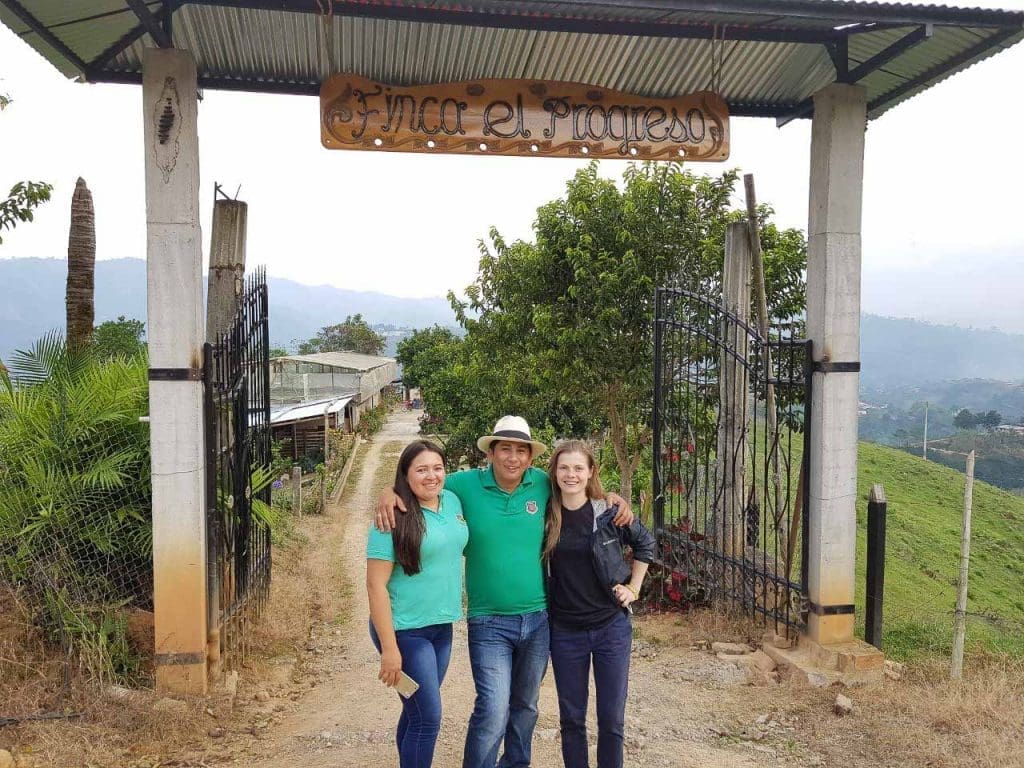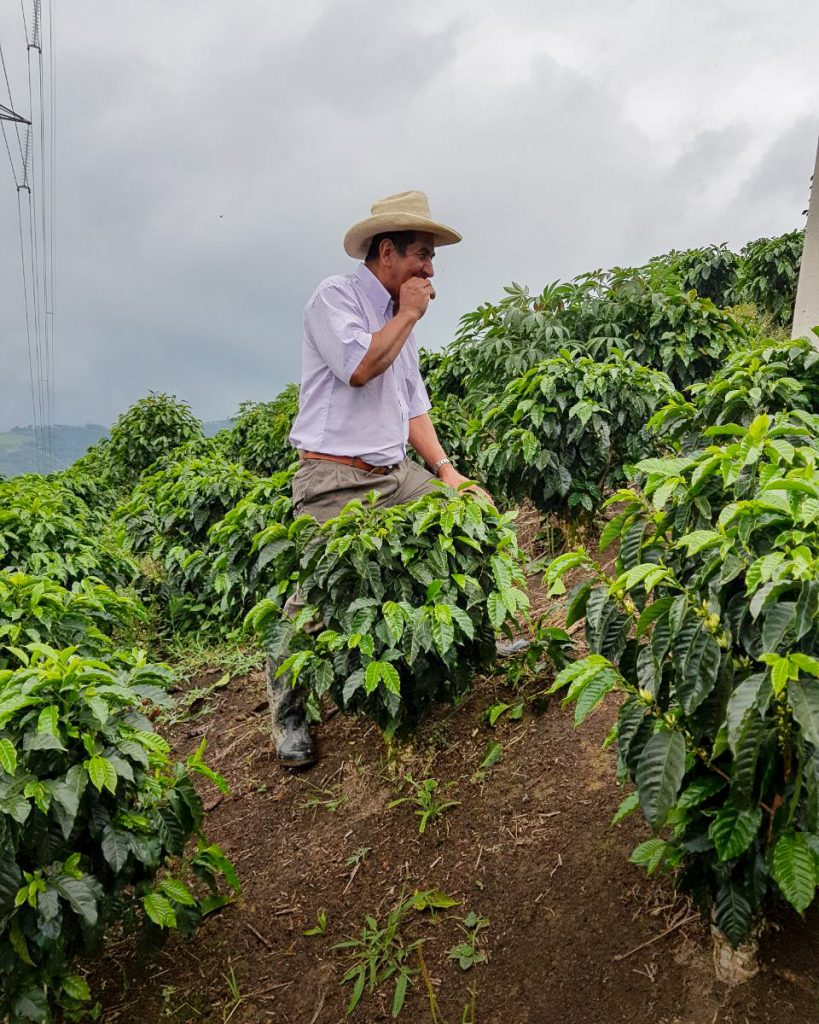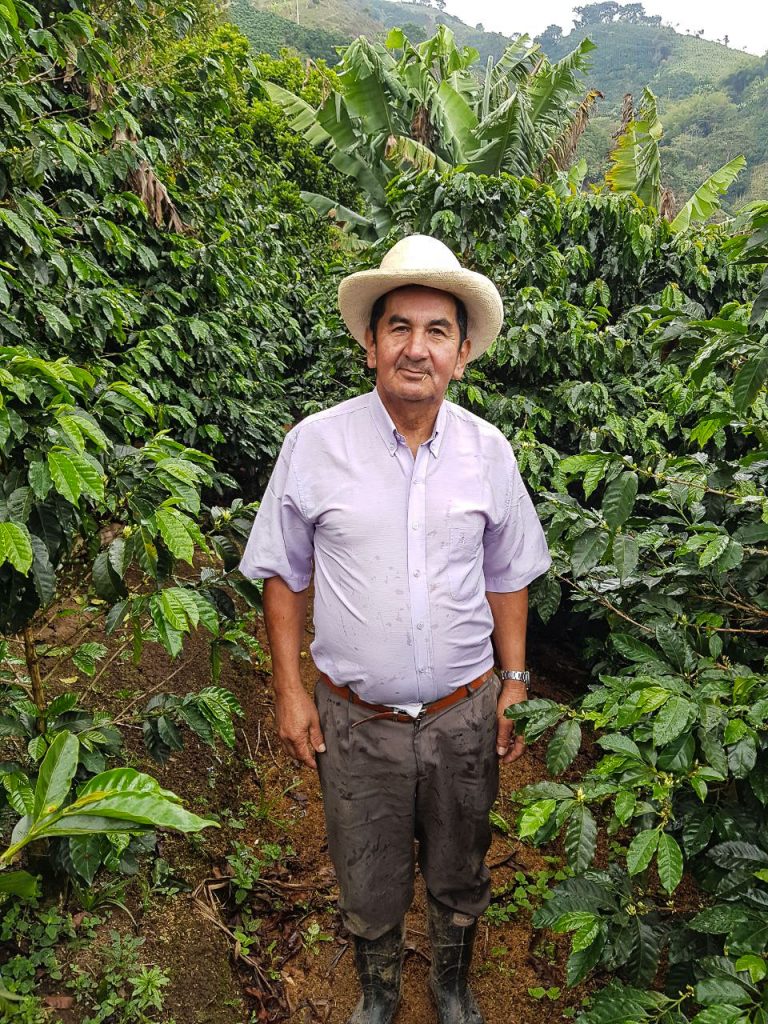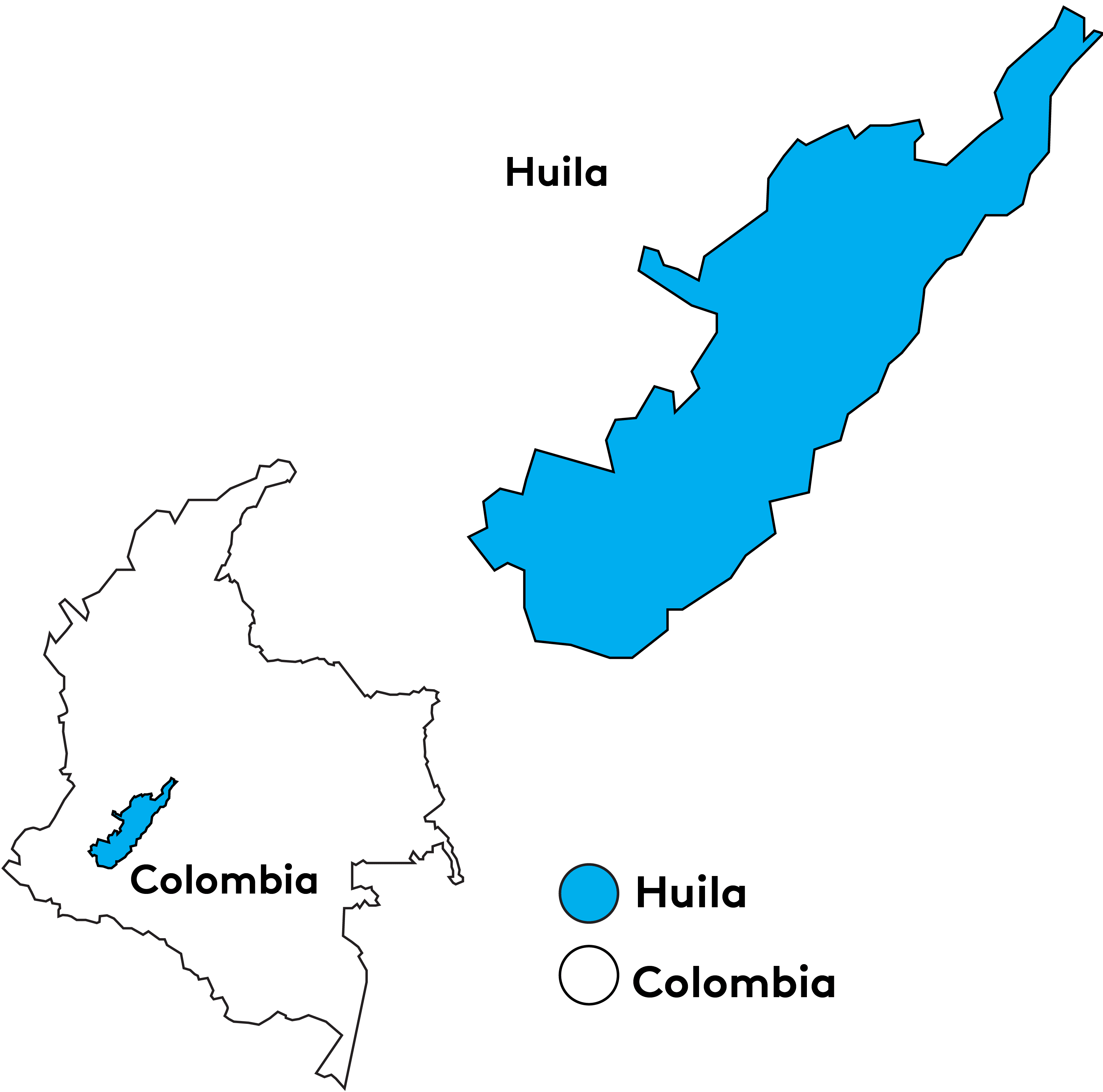Finca El Progreso is located in Vereda El Caramelo, Palestina municipality outside of the city of Pitalito. The farm belongs to Rodrigo Sanchez Valencia and Claudia Samboni and grows Gesha, Bourbon, and Caturra trees between 1580 and 1700 meters above sea level. The property has been a coffee farm for 80 years, starting with eight hectares planted with coffee and growing to its current 22 hectares.
The property is special because it is where the Sanchez Valencia family was born and raised. Rodrigo, Claudia, and their team focus on producing both quality and quantity. By following a systematic plan for fertilizations, variety selection, pest and plague control, harvesting, and processing, they and their team are able to produce both consistent quality and overall high volumes per hectare.
All cherries harvested are measured for degrees Brix. Based on sugar content indicated, the team at Aromas del Sur, the umbrella group of Monteblanco, Progreso, and La Loma farms, then designates which processing method is appropriate. Coffees with 24–27 degrees Brix are processed as Washed coffees, beginning with depulping cherries the day they are harvested.
Coffee is fermented between 28 and 32 hours, fully washed with clean water, transferred to the solar dryer for several days, and finally moved to shaded raised beds to complete the drying process. Floaters are removed at the first stage prior to depulping to produce clean, consistent coffees that represent the terroir of the farm.
While the farm runs successfully as a business, the land holds special meaning as family legacy. These are the connections to people and place Rodrigo and his family share when they offer their coffee.
This lot from El Progreso is a blend of Bourbon and Caturra varieties and shares the terroir of the family farm with coffee drinkers around the world.
Read more about Rodrigo and Claudia’s other experimental farm, Finca Monteblanco, on the Ally Coffee blog. Pictured below is Don Rodrigo, Rodrigo’s father and inspiration for growing coffee.
